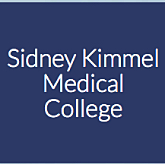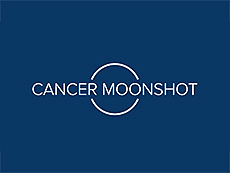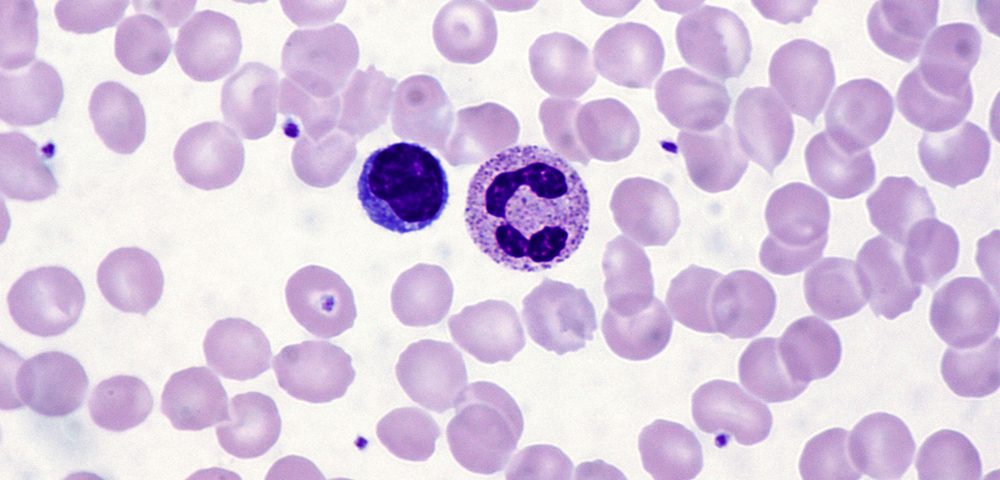 Scientists at Thomas Jefferson University’s Sidney Kimmel Medical College in Philadelphia have developed an innovative new vaccine designed to halt the spread (metastases) of gastrointestinal tract cancers. These include malignancies originating in the colon, rectum, pancreas, stomach, and esophagus.
Scientists at Thomas Jefferson University’s Sidney Kimmel Medical College in Philadelphia have developed an innovative new vaccine designed to halt the spread (metastases) of gastrointestinal tract cancers. These include malignancies originating in the colon, rectum, pancreas, stomach, and esophagus.


Dr. Scott Waldman, professor and chair of Sidney Kimmel Medical College’s Department of Pharmacology and Experimental Therapeutics at Thomas Jefferson University, and Dr. Adam Snook, an instructor in that department, led a team from the departments of microbiology and immunology, dermatology and cutaneous biology, and medical oncology at Jefferson in the project.
In the early 1990s, Waldman identified an enzyme called guanylate cyclase C (GCC), which was found to accurately detect the spread of colon cancer and predict its recurrence.
In half of colon cancer cases, rogue cells escape the colon and the cancer returns within two to five years. When this happens, the tumor is no longer confined within the colon and appears in other areas of the body , which makes treatment more challenging and is associated with worse prognosis.
, which makes treatment more challenging and is associated with worse prognosis.
The breakthrough vaccine designed by the Sidney Kimmel Medical College development team target GCC, thereby instructing the patient’s immune system to seek out and destroy metastatic tumor cells and prevent metastases outside the colon.
This is encouraging news for patients, since cancer containment to the original tumor leads to better outcomes.
“When we diagnose a patient with colon cancer, removing the primary tumor is not always the entire story,” Waldman said in a press release. “Indeed, at the time of surgery, tumor cells can already be on their deadly mission attacking other areas of the body. Our preliminary findings regarding the vaccine mean we have the potential to limit the aggressive nature of this disease and prevent metastases.”
In 1994, a Pennsylvania biotech company, Targeted Diagnostics & Therapeutics, acquired worldwide exclusive rights to develop and market the GCC-based technology from Thomas Jefferson University, and has since supporting the work on the vaccine in Waldman’s laboratory. After 15 years of research and pre-clinical lab and animal studies to evaluate the vaccine’s biological activity and safety, Waldman filed an Investigational New Drug (IND) application with the U.S. Food and Drug Administration. The FDA approved the IND in 2013.
A two-year Phase 1 clinical trial, successfully concluded in 2015, tested the investigational vaccine’s safety and tolerability stage 1 and stage 2 colon cancer patients. Results of the trial determined the vaccine’s safety and tolerability, and that in some patients it elicited an immune response.
Viral Gene, a company that has been established to obtain funding for and to conduct a U.S. Phase 2 trial for the vaccine, has recently received an investment of $8.7 million from the Korea-based firm Alpha Holdings for funding the Phase 2 trial, commercializing the vaccine, and bringing it to market.
This trial, which will be directed by Waldman and Snook, is expected to begin in 2017 pending FDA approval, and would assess the vaccine’s effectiveness in patients with the targeted cancers. It is expected to be completed in approximately two years. Viral Gene and Alpha Holdings also plan to collaborate on a Korean trial for the Asian market under Waldman and Snook’s direction.
Viral Gene also announced plans to submit an Orphan Drug application to the FDA. Orphan Drug development is meant to advance evaluation and development of new drugs that have shown promise for better diagnosing or treating rare diseases (ones that affect fewer than 200,000 people) or conditions affecting more than 200,000 persons but not expected to recover a drug’s development and marketing costs.
If the FDA approves Orphan Drug status and the vaccine’s effectiveness is demonstrated in the Phase 2 trial, it is expected to receive fast-track marketing approval.
 The Sidney Kimmel Cancer Center at Thomas Jefferson University is part of the Obama White House’s Cancer Moonshot Task Force initiative, and offers a Sidney Kimmel Cancer Center Cancer Docs app for both iOS and Android mobile devices that are available on iTunes and Google Play, and that make it easy for patients and doctors to contact all Thomas Jefferson University oncology physicians.
The Sidney Kimmel Cancer Center at Thomas Jefferson University is part of the Obama White House’s Cancer Moonshot Task Force initiative, and offers a Sidney Kimmel Cancer Center Cancer Docs app for both iOS and Android mobile devices that are available on iTunes and Google Play, and that make it easy for patients and doctors to contact all Thomas Jefferson University oncology physicians.



I have (technically) stage IV colon cancer (4 cm tumor on the right side) that I’ve undergone 7 treatments of chemo for, but the chemo is proving toxic to other organs (kidneys) and I’m also a liver transplant patient (8 years ago) – has the vaccine been approved yet and when do you anticipate that it will be? My surgeon wants me to have surgery (tumor board review this Wednesday) then complete 5 more chemos for the 12 cycles; but we are looking for alternatives since it has become so toxic.